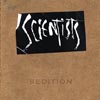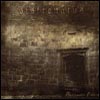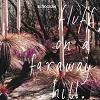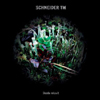- Administrator
- Albums and Singles
 An ATP-sponsored reunion of the dormant Aussie post-punk band is a revelation, and this live album shows just how many of the bands you know nicked from the Scientists' legacy. While packaged like a best of compilation, Sedition is actually the document of a May 2006 performance at the All Tomorrow’s Parties festival. It covers their own "best of" material from their nine year career and it can easily function as such because the band still plays as tightly as one who never took any sort of break.
An ATP-sponsored reunion of the dormant Aussie post-punk band is a revelation, and this live album shows just how many of the bands you know nicked from the Scientists' legacy. While packaged like a best of compilation, Sedition is actually the document of a May 2006 performance at the All Tomorrow’s Parties festival. It covers their own "best of" material from their nine year career and it can easily function as such because the band still plays as tightly as one who never took any sort of break.
Before I popped this disc in I wasn’t sure what to expect. I knew the Scientists were a post-punk era band from Australia, and that was the extent of it. Inside, this release features liner notes from Thurston Moore, Jon Spencer, and Warren Ellis, among others. Listening to Sedition it’s not hard to hear the influence the Scientists’ career had on the likes of Sonic Youth, Pussy Galore/Blues Explosion, and the Bad Seeds.
Not really punk per se, the Scientists were more apt to mesh the dissonant guitar and the middle class ennui of jobs and mundane life ("Set It On Fire," "Burnout") with more traditional blues structures and rhythms. Opener "Swampland" is perhaps the most conventional of all, reminiscent of many (good) post-punk bands: Joy Division meets a little baby bit of surf guitar. Things aren't all conventional, because I’ll be damned if "Leadfoot" and "Revhead" especially aren’t nods to Suicide, with their mechanical bass/drum rhythm sections, rambling stream of consciousness vocals, and feedback laden guitar noise. Things aren't all abrasive either, as "When Fate Deals Its Mortal Blow" and "Blood Red River" conjure up sleazy southern blues elements that were surely copped by Messrs. Cave and Spencer.
Sedition comes in a deluxe moleskin book style cover: respectful packaging which is even suggestive of a career retrospective yet it's hard to believe that recordings contained are from one show. It doesn't even feel like a “live” album, as it acts like a great introduction and overview to The Scientists which makes for a coherent, cohesive listen.
samples:
Read More
- Administrator
- Albums and Singles
 For those in need of a disc to spin this coming Halloween to scare the children, or simply can't get enough of clanging percussion and synth noise, this may fit the bill. For the rest of us…not so much.
For those in need of a disc to spin this coming Halloween to scare the children, or simply can't get enough of clanging percussion and synth noise, this may fit the bill. For the rest of us…not so much.
Division One isn't quite sure what it wants to be. Throughout the 9 untitled tracks, Sistrenatus bounces from subgenre to subgenre and never quite falls into one place. The first couple would fit right in as the ambient sound on the latest installment of Saw or Hostel—all heavily reverbed metallic creaks and groans, secure metal doors slamming shut from afar, distant voices in the darkness, and some occasional muffled breathing sounds cutting through—but by the end we're inundated with newsreel and dialog samples, militaristic snare loops and robotic noise tones, which may or may not cause any listener to go on a wild goose chase for someone named Sarah Connor.
The middle elements are a bit less cliché, leaning heavily on analog noise textures, distorted feedback and the occasional shouty indecipherable vocal lines. Add in the occasional bass synth sequence and crashing metal percussion and here's something the Tesco crowd falls head over heels for.
The greatest limitation of this work is that it doesn't do anything different for the overall genre that hasn't already been done. There's nothing inherently wrong with it, it is a very competent work. The problem is that fans of this style of music probably already have a few discs that are along the same lines as Division One. Considering this is a debut album, there’s always time for growth and maturation, so hopefully the next Sistrenatus will stand more on its own, rather than just lurking in the shadows with other pale faces and well worn reverb units.
samples:
Read More
- Administrator
- Albums and Singles
 This sixth album is another firm step forward for Ectogram. While still firmly rooted in the Krautrock and post-punk spirit that is their hallmark, they keep pushing their albums into new places, challenging themselves and creating a treat for us in the process. It is easy to get lost in this album for hours; the eight songs that make up this album are meticulous in terms of sonic texture and each listening experience is full of new surprises. Not only that but Fluff on a Faraway Hill is fun too.
This sixth album is another firm step forward for Ectogram. While still firmly rooted in the Krautrock and post-punk spirit that is their hallmark, they keep pushing their albums into new places, challenging themselves and creating a treat for us in the process. It is easy to get lost in this album for hours; the eight songs that make up this album are meticulous in terms of sonic texture and each listening experience is full of new surprises. Not only that but Fluff on a Faraway Hill is fun too.
Klangbad
It is obvious right from the start that this time Ectogram are having more fun than they did on their last album, Electric Deckchair, which was great but hard work to listen to. The eight songs on Fluff are less obtuse: the band sound like they are actually enjoying themselves. The opener "Brink of Water" is like audio candy floss: a shimmering guitar bubbles over a solid rhythm while Ann Matthews' unique voice emerges from the center of the song like smoke through gauze. It is a fantastic start to an album and sets the standard high from the beginning. The next track out-does the first: "Devisor" is based around a spellbinding Ebow riff which drives the song. Again Matthews' vocals float like a ghost into the mix, her performance on this album is wonderful.
The middle of the album sees Ectogram slowing things down, allowing the sounds of their instruments to have more space. The effects are used appropriately, normally such heavy use of phaser (or whatever swooshing effect they're employing) gets irritating very quickly but Matthews and Alan Holmes both tastefully color the guitar sound instead of overpowering it. The album picks up the pace towards the end and finishes off with "Strategy Three" which has one of the cheeriest guitar melodies I have heard since I last listened to the Beach Boys.
I seem to be unable to get sick of Fluff on a Faraway Hill which is no mean feat. Overall, the album is dense enough to make multiple listens rewarding but not so dense as to make it a chore to wade through. Ectogram have outdone themselves this time and I hope they continue to outdo themselves in the future.
samples:
Read More
- Administrator
- Albums and Singles
 Since 1934, Fuentes has been the premiere record label of Colombia, home to the country’s rich legacy of music. Covering the years from 1960 to 1976, this compilation is instantly likeable and very enjoyable throughout, highlighting some of the best work from the Fuentes vaults.
Since 1934, Fuentes has been the premiere record label of Colombia, home to the country’s rich legacy of music. Covering the years from 1960 to 1976, this compilation is instantly likeable and very enjoyable throughout, highlighting some of the best work from the Fuentes vaults.
The music contained herein reflects the wide variety of regional Latin style as well as worldly influences found in Colombian music. Cumbias, salsas, fandangos, and rumbas are well represented, as are Caribbean calypsos, African rhythms, and some elements of American jazz. Percussion is an important element of every song, which keeps the music lively and danceable.
Even if a lot of the songs have an air of familiarity (because of the stylistic tropes they employ), most have something extra that differentiates them from their peers. One of my immediate favorites is "Cumbia En Do Menor" by Lito Barrientos y su Orquesta. Its emphatic rhythm is trance-inducing, an effect embellished by what sounds like a clarinet playing Middle Eastern scales. La Sonora Cienaguera's "La Piojosa" has a pleasantly anxious rhythm, an enticing trumpet melody, and an intriguing keyboard accent. Even Fruko y sus Tesos' "Salsa Na Ma" initially sounds fairly traditional but then fades in an eerie organ after a couple of minutes to disrupt any notions of standardization. American music infiltrates a bit on another track by Fruko's group, bursting into a '60s rock chord progression and vocal harmony before a particularly ferocious drum solo returns it to its Latin roots. The slower, hypnotic "La Pata y el Pato" by Climaco Sarmiento y su Orquesta is one of the rare tracks featuring female singers, and it's clearly one of the album's best.
While some tracks are more unique than others, there's nothing here that deserves to be skipped. Colombia has a magnificent musical heritage, and this compilation is but a tip of the iceberg. Hopefully this will pave the way for greater access to the Fuentes archives in the near future.
samples:
- Lito Barrientos y su Orquesta - Cumbia En Do Menor
- La Sonora Cienaguera - La Piojosa
- Climaco Sarmiento y su Orquesta - La Pata y el Pato
Read More
- Administrator
- Albums and Singles
 It would hard to live up to the level of anticipation surrounding this debut from Brazilian producer Gui Boratto after his string of tantalizing singles, so I wasn't surprised when it didn't quite meet my expectations. There are plenty of enjoyable moments, but not nearly as many as there should be.
It would hard to live up to the level of anticipation surrounding this debut from Brazilian producer Gui Boratto after his string of tantalizing singles, so I wasn't surprised when it didn't quite meet my expectations. There are plenty of enjoyable moments, but not nearly as many as there should be.
While it's true that he does paint his canvas with brighter colors than many of his contemporaries, some parts seem cut from the standard Kompakt mold. The beginning especially suffers from a few monotonous stretches, with a limited palette of sounds and few rhythms or beats I haven't heard before. However, the album does get better as it progresses, especially when Boratto strays from formulas and tries new things. "Terminal" starts to pick things up a bit, even if it's not particularly groundbreaking, and a nice change after about four minutes into "Shebang" saves the song from its annoying beginning. There aren't a wide variety of textures on the album, although the title track has some welcomed noisier sounds that add some necessary grit.
Dance music isn't particularly known for its brevity, but for the most part it is Boratto's shorter songs that work the best. "Mal√° Strana" is a quieter, much-appreciated interlude, signaling the prettier direction that follows with "Acrostico." "Xilo"makes good use of a guitar, enriching the album with another compositional element. "Beautiful Life," with vocals by Luciana Villanova, is the closest the album gets to an accessible pop song, but at eight and a half minutes long the point drags a bit. Still, it's another pleasant shift in the right direction. "Hera" has a strange, warped collapse before the main melody returns with a new rhythmic undercurrent. The album could have used more surprises like this.
Boratto gets better as he stretches further out of his comfort zone. It takes him a while to get going, and a trim or two might have tightened the focus. Still, there are some great songs here. It just takes a little work to find them.
samples:
Read More
- Alan C. Abbott
- Albums and Singles
Living with the Living is fantastically well done and had it been made in the '70s, it would be a masterpiece. The second song, "Songs of Cain," sounds like a cross between The Replacements' "Bastards of Young" and the Clash's "Hateful" and as unlikely as it may seem, it's almost as good. The same goes for the Costello-ish "Army Bound" and "The Unwanted Things," which sounds like the Clash in reggae mode. These songs have a certain brilliance, but it's greatly reduced by their unoriginality. Listening to this album is like hitting on a hot and vacant woman when there's already a beautiful and smart one at home.
Had Ted Leo been born 30 years earlier, it’s possible he would be regarded as a genius. But just as likely, he could have looked at the burgeoning punk scene of the late 1970s and started a fantastic doo-wop band.
Read More
- Administrator
- Albums and Singles
 I'm never opposed to making time for a new record from The Sea and Cake. While they don't explore new territory, I'm never let down. Everybody is a once again welcome record to mark the end of the cold season, optimistically looking forward to more pleasant, brighter days.
I'm never opposed to making time for a new record from The Sea and Cake. While they don't explore new territory, I'm never let down. Everybody is a once again welcome record to mark the end of the cold season, optimistically looking forward to more pleasant, brighter days.
Bassist Eric Claridge and drummer John McEntire create a firm, impenetrable rhythm backbone while vocalist/guitarists Sam Prekop and Archer Prewitt pepper it with positive pleasantry. The Sea and Cake have defined their own brand of pop, creating uplifting tunes that don't sound out of place alongside the springier Stereolab and the more rocking Laika.
The effects of cold, grey, and windy North American cities can take their toll on people, and The Sea and Cake music makes for a great remedy. It's probably no accident that their albums arrive early on in the year, just as the blossoms are starting to come out. Everybody is no exception and I have found myself playing it often while keeping the windows open: even if it can still get a little cold outside I'm anxious for the warmth and brightness. "Up On Crutches" sets the album in motion from the beginning and the moderate pace continues almost seamlessly through "Too Strong," but the bold guitar riffage and hand claps on "Crossing Line" makes the first strong statement on the album, making for a great repeatable singalong song.
I'm always impressed at how efficient The Sea and Cake music is arranged. This 10 song collection takes up less than 40 minutes and the songs, while rich in arrangement and full of Prekop's lyrics, get right to the point and leave when they're done, or almost. While my personal fave on the album, "Lightning," stands out as one of the tunes that waits almost no time before jumping into the vocals, the following "Introducing" fades out a little prematurely for my liking. It makes me eager for the band to take only a slight more varied approach to their records. Instead of fading out, it would be something almost shocking if the band went and jammed on it for about three times as long.The album ends with the unusually (for them) slow and undeniably pretty ballad, "Transparent," accented with a sparkling acoustic guitar. Lyrics like "it's starting all over, the spring comes around" aren't prophetic but they do resonate with me at the end of the disc.
The most arresting aspect of Everybody is its lavish package: a digipack with a pocket that holds a meaty book of scribbled personal notes on graph paper along with some black and white photo reprints. The color white has always been a prominent feature with all their releases and while it's good to get away from that, the silvery grey theme, with black and white images inside of snow, geese, and urban landscapes, is a bit of a bleak contrast to the music. Regardless, this is a very mobile album which lends itself to portable devices, headphones for work, or for a good drive, so I doubt people will flip through the package much while it's playing.
I can't help but think it's time for The Sea and Cake to take another sidestep: perhaps another remix EP like the fantastic Two Gentlemen or the respectable Glass, but I'd be quite happy with a collection of all those pesky Japanese-only bonus tracks as well. For now, I'm satisfied with a summer-friendly album like Everybody, and have made plenty of use of it already.
samples:
Read More
- Administrator
- Albums and Singles

Artist: SUTCLIFFE JÜGEND / SATORI
Title: Japan Tour 2007
Catalogue No: CSR83CD
Format: CD in PVC sleeve with 2 artcards
Genre: Power Electronics / Death Industrial
Shipping: 3rd May 2007
Split release from these two British acts for their Japanese Tour in April 2007.
After "THIS IS THE TRUTH" Sutcliffe Jügend continue to fuck with your brain. This time with a twenty eight minute diatribe against those who choose the path of least resistance, and suggest not only that they face their demons but embrace them. Are they questioning the listener or holding up a mirror and not liking what they see? Sutcliffe Jügend continue to explore and understand the human condition with more depth and clarity of vision than a hundred singer/songwriters. A collage at turns ambient, experimental and explosive, they leave the listener thinking where next and more importantly - who is next in the line of fire.
Satori arises with its first official release after 12 years of silence. 3 tracks of prime Fortean Electronics and Death Sonics, exploring the Noise side of Satori. Inspired by the Ringu trilogy, these tracks probe the hidden world of dead channel transmissions and unseen realms of the ether. This is the precursor to the Dark Ambient full-length album "KANASHIBARI", to be released on Dogma Chase Records / Molehill, Japan in 2007.
Limited to 500 copies only with all-exclusive studio tracks.
Full details and ordering : Cold Spring Records�
Read More
- Administrator
- Albums and Singles
Mojave3 members form new band The Loose Salute. Fans of Fleetwood Mac, The Byrds, The Mamas and the Papas, Wilco and Midlake tune in to debut album Tuned To Love.
The Loose Salute came to life a couple years ago when Mojave3’s Ian McCutcheon (drums & vocals) and Alan Forrester (piano & organ) were in the studio recording the band’s third album Excuses for Travelers. One day at the Fortress Rehearsal Studios’ café, McCutcheon overheard Lisa Billson (vocals) belting out Bob Dylan’s “Sad-eyed Lady of the Lowlands,” while she cooked at the studio café.
Instantly impressed by Billson’s pipes, he asked the songbird if she’d be interested in singing a few tunes he’d written. She loved the songs and got friend Charlotte King (harmonies & percussion) to lend back-ups. Guitarist Pete Greenwood, who played with McCutcheon and Forrester on the last Mojave3 tour, was asked to join the clan shortly thereafter. Together --sometimes with the help of Paul Noble on added bass, surf guitar and mixing skills -- they form The Loose Salute.
The Loose Salute is essentially a pop group, though some have categorized it as folk/pop and even at times alt-country. Songwriting influences range from the likes of The Byrds, The Beach Boys, The Mamas and the Papas, The Eagles and Leonard Cohen. “Basically the albums in my parents’ record collection when I was growing up,” McCutcheon laughs. Some of the more contemporary inspirations include Elliott Smith, Beachwood Sparks, The Tyde, Wilco, The Shins, Midlake and Dr. Dog. ”You could say The Loose Salute sound borrows from all of these bands,” says McCutcheon.” The vibe is different from Mojave3. We’re more of a pop group. It’s a little more fun in places.”
The English group’s debut album Tuned To Love is a record full of summer and nostalgia and songs that make you want to go out, find some friends and dance the night away. The songs are about all the facets of life: falling in and out of love, break-ups, partying, wanderlust, home-cookin’, surfing, travel, fields, beaches, stars and bars…”The general weight of the world,” explains McCutcheon.
“The Mutineer” is an apology song, while “Why’d We Fight?” is a reflective song about breaking up. “‘Through the Stratosphere to the Bars’ is about appreciating the person or people you have in your life,” he says. “We always seem to be looking for something when what we really need is often already right there in front of us.”
After the plug got pulled on the money following the release of its first single, the Suck It Up Buttercup EP, the band decided to just get on with it and make an album themselves. Luckily for them, the EP had managed to gain attention all over the world, catching the ears of Graveface Records in Chicago. A demo and a few meetings later, a conclusion was met and The Loose Salute was signed to Graveface, where they proudly share the roster with indie favorites like Black Moth Super Rainbow, The Octopus Project and The Appleseed Cast. The band has since been hibernating in the studio with hot-shot engineer Gareth Parton (The Beta Band, The Go Team, The Pipettes, Mojave3) and producer and McCutcheon’s school-yard buddy Pritpal Soor.
Tuned To Love hits the streets and the airwaves this June.
Tuned To Love Tracklisting:
Release Date: June 12th, 2007
01. Death Club
02. Photographs and Tickets
03. From Head To Sandy Toes
04. The Mutineer (VIDEO)
05. Turn The Radio Up (VIDEO)
06. Why’d We Fight?
07. Ballad of The Dumb Angel
08. Through The Stratosphere To The Bars
09. Cold Water
10. Tuned To Love
11. Ship On The Ocean
On The Web:
www.myspace.com/therealloosesalute
Read More
- Alan C. Abbott
- Albums and Singles
Read More
- Administrator
- Albums and Singles
 Schneider TM attempts to broaden the palate with the help of Max Turner and grandmother Edith Kuss. Thankfully he doesn't abandon the machine-like vocal tendencies that can be so endearing. Not everything works on Škoda Mluvit, but there are moments of bliss and fun.
Schneider TM attempts to broaden the palate with the help of Max Turner and grandmother Edith Kuss. Thankfully he doesn't abandon the machine-like vocal tendencies that can be so endearing. Not everything works on Škoda Mluvit, but there are moments of bliss and fun.
Confident and obtuse vocals delivered by German speakers, or indeed by robots, can be very satisfying and this new record obliges, up to a point. Schneider TM, a.k.a. Dirk Dresselhaus, had his first huge breakthrough with "The Light 3000," which used voice synthesizers to cover The Smiths' "There Is a Light and It Never Goes Out," and in the process created an expression of emotional knowledge and alienation that was a valuable contribution to the, shall we say, Do Androids Dream of Electric Sheep?, debate. It was that rare thing, a cover version that didn't merely attempt to bask in reflected glory or end up just being the unromantic sound of familiarity. "3000" now seems to predict recordings from Mr_Hopkinson's Computer, while echoing elements of Langley Schools Music Project, Eedie & Eddie (two DecTalk‚Ñ¢ voice synthesizers), and Nico (because at her best she sounds like a robot), by using a combination of conviction and innocence to transform familiar material. Most people will have heard the cool digipath CAL from 2001, the voice slowly shifting from a portrayal of emotionless, yet genial assurance, to deranged existential panic. If someone had thought to capture the lonely libidinous ache of the drones from the film Silent Running maybe it would better capture the playfulness of Schneider TM.
There are no covers on Škoda Mluvit, and the record moves further into the use of traditional or real instruments than previous ones. The pace of some of these tracks, along with the always potent and sometimes mechanical vocals, lend urgency to pieces which otherwise have a pretty relaxed feel. Opener "More Time" consists of a chugging electronic beat and synth waves complimenting a few repetitious words. By contrast, "Pac Man/Shopping Cart" features sweet guitar phrases, a click and stutter rhythm and lilting singing to suggest some emotion. As with Tarwater, the voice is so effortlessly commanding that the instructions off a bottle of tablets could be the lyric and it wouldn't matter. It's just as well, since that is exactly the idea for "Caplets." This track plinks and strums along to around the three minute mark with said medicinal advice, before coming back with the voice more synthesized and complimented by the cello of Hildur Gudnadottir. The recurring phrase "8 days a week" may bring unavoidable associations for certain listeners.
"Voudou" has a more funky sensibility that neither gels nor is so artificial that it becomes attractive. The title track has vocals from Edith Kuss and hip hop artist Max Turner. I'm not about to say anything bad about anyone's grandmother but I prefer "The Blacksmith" also featuring Turner. It is more swinging and benefits, as would virtually anything, from quoting Curtis Mayfield and mentioning Leadbelly. Sometimes, even the worst lyrics can sound good: "Time flies by, like a fly" from "Cateractact" works, again due to Schneider TM's confident delivery, here allied to a wind-up, catapulting sense of percussion. Strangely the least convincing moments on Škoda Mluvit come when the words 'fucking' and 'motherfucker' are used.
An argument once ensued in our house as to the meaning of Barbie TM. One party felt that this was her initials (Tina Marie) whereas another was sure that it referred to her status as a Tall Model. This was not a particularly challenging nor totally rewarding listen, but rather there are some choice tracks that stand out, almost a trademark of the endearingly flawed Schneider TM sound. Most disappointing of all is "The World's A Cup" which appears to sneer in vague complaint at the 2006 World Cup tournament, held in Germany. The contrast with The Colonel’s fabulous "Cup My Balls" (on V/VM) is stark. The Colonel's leering and romping with overtones of empiric conquest and thuggish pillage was a jaw-dropping masterpiece of innuendo and Bond uber-riffing; as if John Barry were holed-up in the Playboy mansion watching games between, well, you know... Schneider TM's is the opposite and just seems a bit of miserable moan. Thankfully, just before that, "The Slide" harks back to some of the more affecting moments of the Factory Records catalogue. The understated track is seemingly throwaway, appears aimless, and yet comes across as profound. A trick that Schneider TM can probably repeat anytime he feels like it.
samples:
Read More

